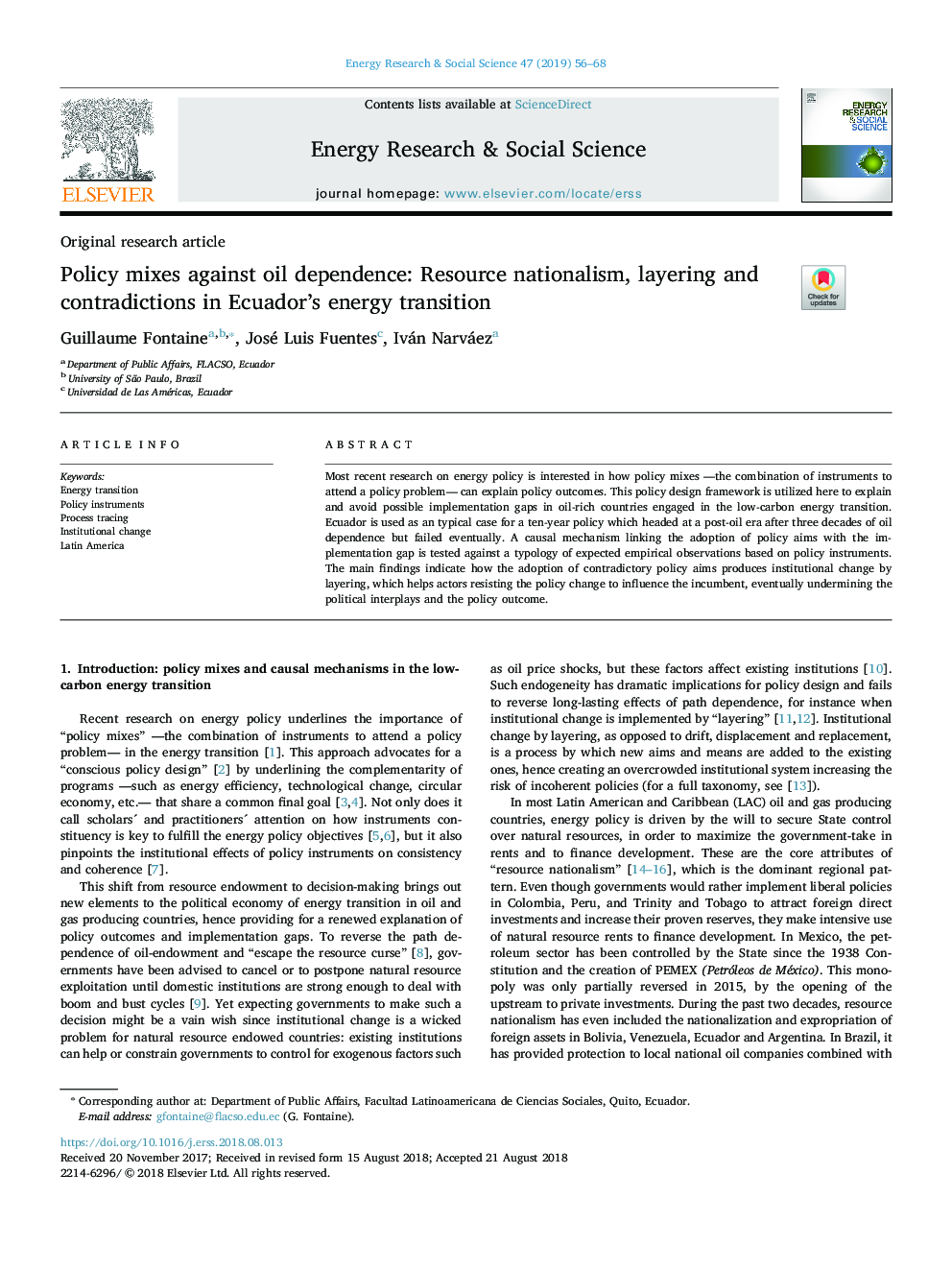| Article ID | Journal | Published Year | Pages | File Type |
|---|---|---|---|---|
| 10145179 | Energy Research & Social Science | 2019 | 13 Pages |
Abstract
Most recent research on energy policy is interested in how policy mixes -the combination of instruments to attend a policy problem- can explain policy outcomes. This policy design framework is utilized here to explain and avoid possible implementation gaps in oil-rich countries engaged in the low-carbon energy transition. Ecuador is used as an typical case for a ten-year policy which headed at a post-oil era after three decades of oil dependence but failed eventually. A causal mechanism linking the adoption of policy aims with the implementation gap is tested against a typology of expected empirical observations based on policy instruments. The main findings indicate how the adoption of contradictory policy aims produces institutional change by layering, which helps actors resisting the policy change to influence the incumbent, eventually undermining the political interplays and the policy outcome.
Related Topics
Physical Sciences and Engineering
Energy
Energy (General)
Authors
Guillaume Fontaine, José Luis Fuentes, Iván Narváez,
